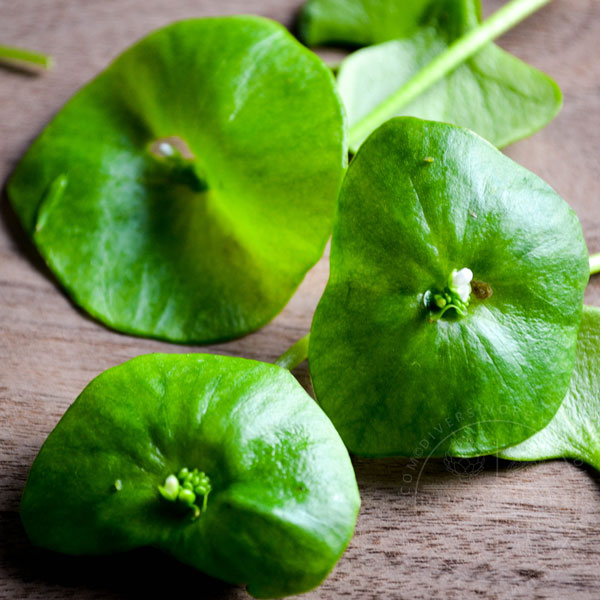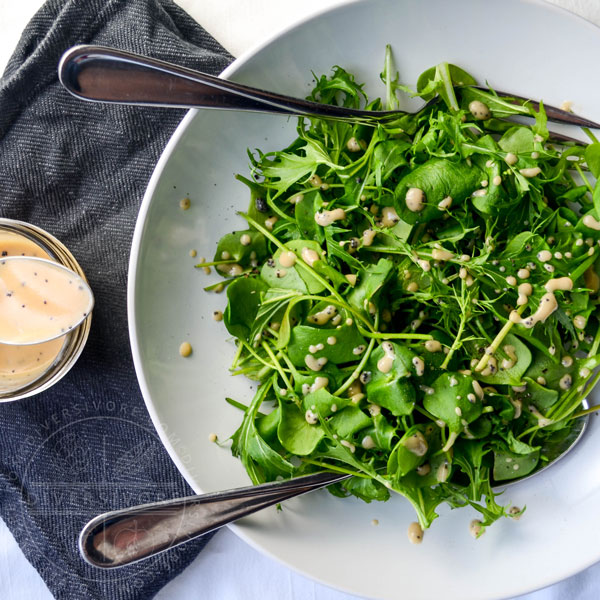How to Find, Choose, & Use
Miner's Lettuce

Share this Guide
The Basics
What Is It?
A tender leafy green member of the purslane family (Montiaceae). It gets its name from its popularity among California gold rush miners in the 19th century. It was revered for its ability to provide much-need vitamins and nutrients (for free) after a stark winter. Miner’s lettuce is native to regions west of the Rocky Mountains from Canada through Mexico and Central America. It has also been introduced and become widely naturalized in Western Europe.
Seasonality
SPRING
Flavour Profile
Green/mildly sweet
Other Names
Latin: Montia perfoliata.
English: Indian lettuce, winter purslane, spring beauty
Miner's Lettuce FAQs
Is Miner's Lettuce Edible?
Absolutely! When it's young, green, and tender, it makes an excellent salad green.
Is Miner's Lettuce a Weed?
It depends a bit on where you are and who you ask. In North America, miner's lettuce (and its close relatives in the genus Claytonia) are native parts of the ecosystem. They can thrive in some disturbed areas and, as such, can infiltrate lawns and gardens. The species is also found in Western Europe, where it is an introduced invasive. In this setting it could be considered a weed.
Are Miner's Lettuce Flowers Edible?
Absolutely! Not only are the small flowers edible, they're a distinctive and beautiful addition to a dish. Unlike many plants, miner's lettuce doesn't become bitter after flowering.
How-To
Find
Forage from clean, uncontaminated wild locations (see 'Need More Detail' below), or from reputable wild food sellers at farmers markets, etc.
Choose
Bright, fresh, young greens without any obvious rot or insect damage. Make sure that wild foods are sourced from areas away from possible contamination (e.g. pesticides).
Prep
Difficulty: Low - Simply wash and remove any debris
Use
Generally used raw as a salad green, though it can be cooked much like spinach (see image below).
Store
Short Term: Wrap in a very slightly damp paper towel and refrigerate in an unsealed bag
Long Term: If you have enormous quantities of this green you can blanch and freeze it much like spinach.
Culinary Info
Flavour Profile
Green/Mild - Miner's lettuce has a mild, slightly sweet, typically green taste, not unlike spinach.
Substitutions
From a purely flavour-focused perspective, spinach makes a good substitute for miner's lettuce. That being said, the unique appearance of miner's lettuce is one of its best features, and this is difficult to substitute for.
Cuisines
Miner's lettuce does not feature particularly prominently in many cuisines, but it is a distinctive feature in modern and historical food cultures from Western North America. It's a popular garnish and salad green wherever it can be found.
Flavour Pairings
As with many mild greens, miner's lettuce can be paired with virtually anything that doesn't overwhelm its delicate flavour. Vinaigrettes, nuts, black pepper, fruits, and sharp cheeses pair well.
Varieties
As far as food is concerned, there are no significant varieties of miner's lettuce. Note that many related Claytonia species are also edible, and have a very similar appearance.
More Info
Nutrition
Moderately high in Vitamins A and CNutrition FactsMiner's Lettuce - 100 g (3.5 oz)Amount Per ServingCalories 20% Daily Value*Fiber 1g4%Protein 2g4%Vitamin A 1100IU22%Vitamin C 27.2mg33%Iron 1.8mg10%* Percent Daily Values are based on a 2000 calorie diet.Top-To-Tail
The entire above-ground portion of the young plant is eaten, including leaves, stems, and flowers. As the plants age in hot weather the leaves become red and dry, and are not generally eaten.
GMO Status
Non-GMO
Health & Science
- Miner's lettuce was an extremely important source of vitamin C during the California gold rush - hence the name.
- Miner's lettuce was a significant food for many First Nations people in Western North America.Organic vs. Conventional
As a (generally) wild food, the distinction between organic and conventional is largely inappropriate. Wild miner's lettuce found in unpolluted areas can generally be considered functionally organic.
Share this Guide


